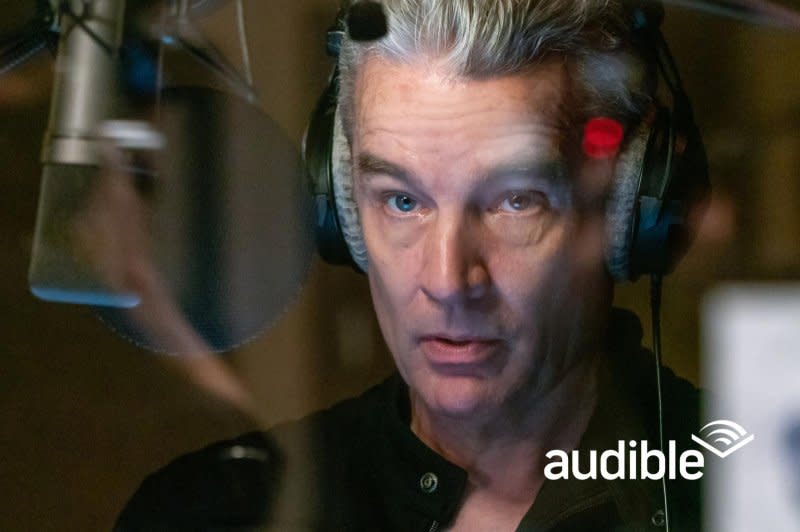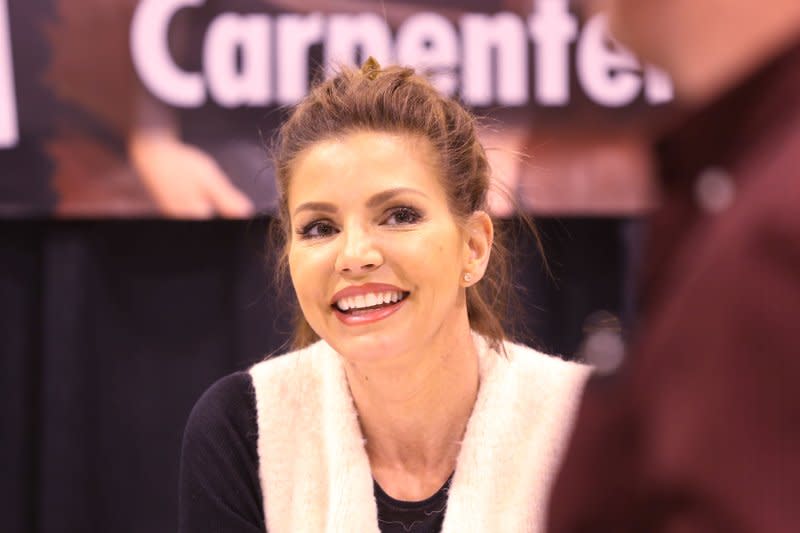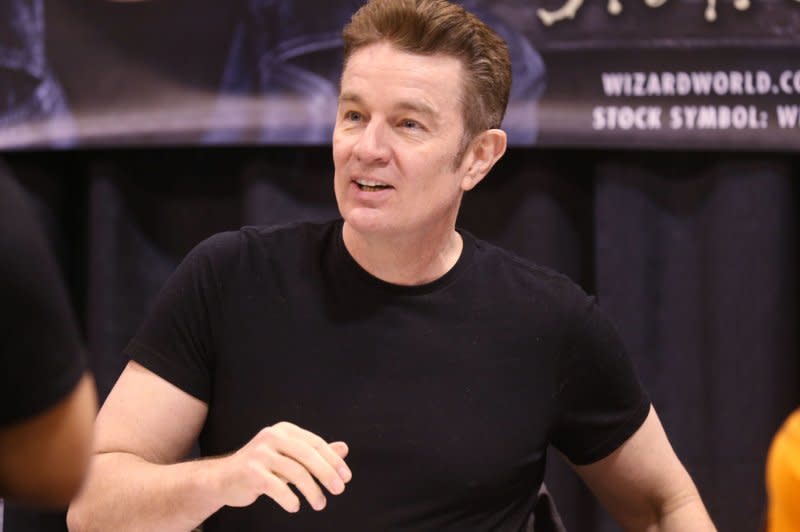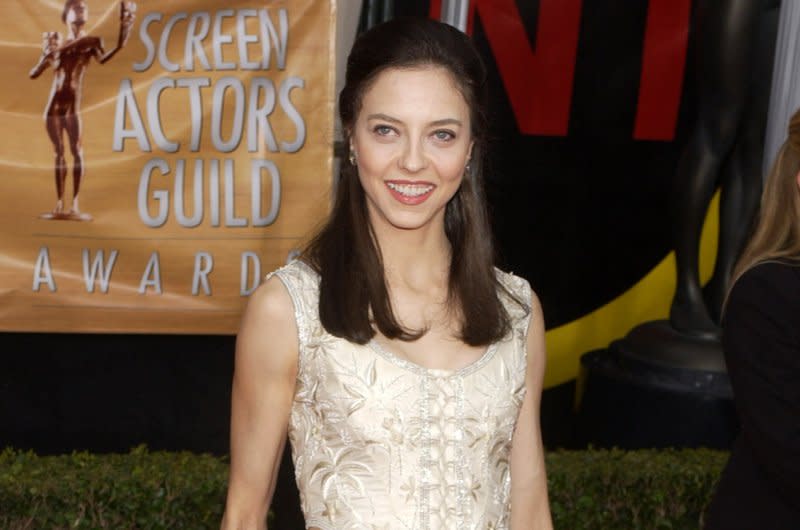'Slayers' Audible star James Marsters didn't think he'd get another stab at Spike

- Oops!Something went wrong.Please try again later.
- Oops!Something went wrong.Please try again later.
- Oops!Something went wrong.Please try again later.
- Oops!Something went wrong.Please try again later.
NEW YORK, Oct. 14 (UPI) -- Smallville and Torchwood alum James Marsters says he never thought he would get to reprise his iconic role of Spike after the supernatural series, Buffy the Vampire Slayer and Angel, ended nearly two decades ago.
So, when his former co-star Amber Benson said she was writing a scripted podcast set in the Buffyverse for Audible, he jumped at the chance to revisit the role.
Now streaming, the 10-episode drama is set in 2013 and finds Spike, the vampire with a soul, working undercover with his old demon friend Clem (James Charles Leary) to protect various slayers, including teen newbie Indira (Laya DeLeon Hayes), in Los Angeles.
The story takes off when Cordelia (Charisma Carpenter) arrives from another dimension, where she is the only slayer, seeking help to battle the evil Queen of the Vampires, Drusilla, (Juliet Landau), who is Spike's ex-girlfriend.
The voice cast, which recorded their lines together in a studio, also includes beloved Buffy characters Giles (Anthony Head), Anya (Emma Caulfield Ford), Jonathan (Danny Strong) and Tara (Amber Benson).

"I was just excited to be able to come back at all," Marsters told UPI at a roundtable interview with reporters at New York Comic on Friday.
"I told the producers when we were filming [the TV shows], they have seven more years if they want me to play him because I had played him for seven years and I think 14-year window for a vampire is enough."

But it would be nearly 20 additional years before Marsters got the call to vamp it up again.
The actor knew the character would be in good hands for the new adventure because Benson was writing and directing it with Chris Golden, the author of numerous Buffy novels.

"Both of them know the world in and out. They are both hugely talented and so patient, which was good for me because I could be annoying," Marsters joked.
"We were originally really well cast. They cast very good actors in roles they could really shine in. It was kind of getting back together and effortlessly fun and easy."
Looking at Leary, he said, "You have a warm personality and, combine that with the lines, and you get a great character."
Asked if it was hard for him to inhabit the villain-turned-champion character he stopped playing 20 years ago, Marsters replied, "How do you forget that guy?"
Leary was eager to flesh out his character and work with other Buffyverse actors whom he didn't cross paths with on the TV show, but has gotten to know over the years at fan conventions.
"Watching everybody work, sometimes I was like, 'Oh, crap, I had a line!'" Leary said, explaining how he would occasionally get lost in the moment.
The Audible series relied on the actors' vocal performances, music and sound effects, while the TV version had all that plus elaborate costumes, special effects and fight scenes to tell compelling stories.
Leary, whose TV version of Clem was created using extensive prosthetics and makeup, said Slayers requires the actors -- and now Audible listeners -- to use their brains to imagine more because the action isn't played out for them visually.
This not only saved money production-wise, but also meant the cast, most of whom are in their 50s or 60s, could star in action sequences they might not otherwise be up to.
"The scripts that were written probably would be easily filmable -- yes, there would be a little of money there -- but they fit very much in what you'd expect out of an original episode," Marsters said.
"My concern was the fights. I'd done other audio dramas and they sound like: 'Ooh! Ah! Eeh! Ah!' And I'm like, 'Cheesy is not the brand.' The [1992 Buffy the Vampire] movie was kind of camp, and I don't think that is the way to serve this property."
Audible lived up to its assurances that the scripted podcast would be an entertaining and satisfying listening experience.
"They're using this proprietary technology that puts the audience at a specific point in the room and then blocks the actors digitally," Marsters said.
"We recorded it standing still at a microphone. They are moving our voices around the room," he added. "For those people who have surround sound, you will hear us walking around you. They had me listen to it in stereo and it is still very effective. I had this idea that people should, in their friend group, find the person who has surround sound and then have listening parties."
The actors said their theater backgrounds prepared them for performances based only on their voices.
"I don't feel like it was a challenge. It had an almost freedom to it," Cleary said.
Marsters added that audiences in theaters generally see the stage actors as tiny figures -- since they are so far away -- and can't really interpret what expressions they have on their faces.
"Your eyes are mostly invisible," Marsters said.
"You're hanging words in the air. That's your job -- to add a certain rhythm and a certain color to a story," he added. "It is a process of putting all the information you have about a character into the voice, but, for us, that was so close to what we do all the time."

